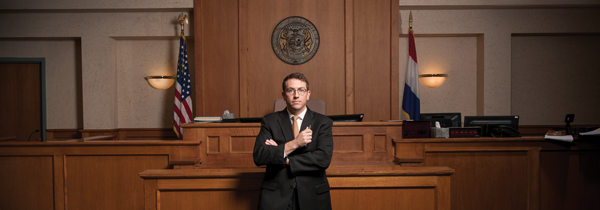When public defenders become plaintiffs
Ineffective assistance of counsel is usually a post-conviction claim—and that can stymie challenges to indigent defense funding. So when Stephen Hanlon of the National Association for Public Defense challenged chronic funding problems at the Missouri State Public Defender Commission, public defenders themselves were the petitioners. And the court was being asked to decide not an ineffective assistance claim but whether and when public defenders may be so overloaded that judges may not assign them any more cases.
Ultimately, the Missouri high court ruled in 2012 that judges may not order public defenders to take more clients than they can competently represent. That was followed in 2013 by a similar ruling from the Florida Supreme Court, which struck down a state law that forbade public defenders from refusing cases because of underfunding or excessive caseload. Both rulings were hailed as landmarks that could change indigent defense.
So why haven’t more public defender offices sued? One reason is that most public defenders are appointed by elected officials, says David Carroll of the Sixth Amendment Center in Boston. That means they’re exposed to politically motivated firings, budget cuts and more.
Main bar: Starved of money for too long, public defender offices are suing—and starting to win
Missouri State Public Defender Michael Barrett has seen this firsthand. Although things aren’t perfect there, he’s deliberately chosen not to use his statutory right to declare case overload. After his predecessor, Cat Kelly, did it, the state legislature proposed privatizing the entire indigent defense system. He says it would have been horrible for Missouri defendants. (In July 2016, however, he sued Gov. Jay Nixon, a Democrat, for withholding indigent defense funding.)
“You’re very rarely going to see a public defender system bring a lawsuit,” Carroll says. “Unless that system has independence, they’re always going to be afraid to sort of stick their head above the bunker. You see Miami-Dade bring it, for instance, because the public defender is publicly elected and only beholden to the electorate.”

Michael Barrett. Photograph by Travis Duncan.



